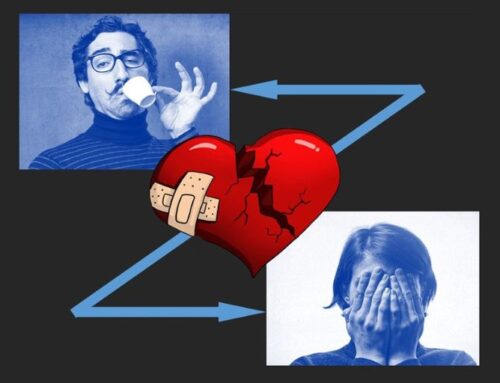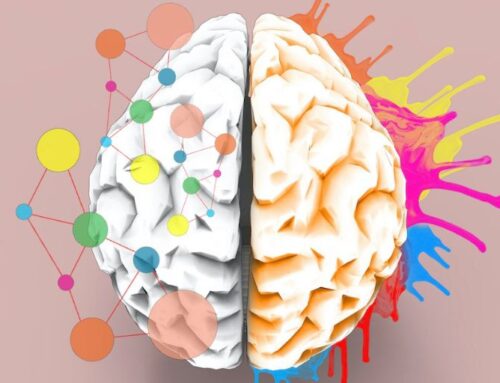“’Mad’ is a term we use to describe a man who is obsessed with one idea and nothing else.” Ugo Betti
We humans seem to have a tendency toward obsession. We fixate upon, over-do and over-use and misuse almost anything – ideas, substances, activities and other people.
We know from our own experiences that our obsessions, great and small, are difficult to change, shift or remove even when they cause us and others a great deal of distress. And, it seems, no level of willpower, self-discipline or self-control can reverse or contain them.
Most especially, we can’t “think” our way out of our obsessive ways.
The Nature of Obsession
“An obsession is intrusive because it does not require a permit to walk into the brain.” Jose A. Yaryura-Tobias
The word “obsession” comes from the Latin obsideo meaning to lay siege or besiege.
When we are obsessed — meaning that we are persistently and disturbingly preoccupied by e.g. a thought or feeling — our minds are literally under siege. We are besieged. We are beset. We are under attack.
Free will is not the weapon of choice when it comes to beating an obsession as it is weak against it. We didn’t cause the obsession. We can’t control it and we sure can’t cure it. At least by our own power.
In their most extreme form, obsessions are a mental disorder found in conditions such as Obsessive-Compulsive Disorder (OCD) and possibly even eating disorders.
Having multiple obsessions and switching between obsessions – obsession transfer – is not uncommon.
Obsession and Addiction
“I wish I knew how to quit you.” Annie Proulx
An addiction can be defined as an inability to stop using a harmful substance or engaging an unhealthy behavior.
Correctly speaking, obsession and addiction are not really interchangeable terms. They are different conditions, but they can go hand and hand. These stories may illustrate the similarities and differences between the two.
A Story of Addiction
Jules comes from a long line of drinkers. She herself has had a problem with alcohol since the age of 14, when she picked up her first drink. Her drinking has affected every aspect of her life. She knows that she she can’t handle the booze, but she is unable to stop despite numerous stays in detox and rehabilitation centers.
A Story of Obsession
Bill is a frantic checker. He has a number of time-consuming “routines” that make his life a misery. One such routine is that he cannot go from his house to his car without frequent return trips to his front door to make sure that it is securely locked. He also needs to check and recheck his pockets for his keys and other valuable items before he hops into the car. As painful as his compulsive routines are, he is unable stop.
A Story of Obsession & Addiction
Lois’ thoughts are totally focused on her girlfriend. She is in turmoil because, despite her girlfriend’s repeated denials, she believes that she is seeing other women. To reassure herself she texts and phones her dozens of times a day to check on where she is and who she is with. Her relationship insecurity is so excruciating, that she uses drugs to calm her anxiety. Now the drugs have become a problem as she can’t function without them. She knows her behavior is off the charts, but she can’t stop either the surveillance, or the drugs.
Dealing with Obsessions and Addictions
“Everything you ever wanted is sitting on the other side of fear.” George Addair
While a good old dose of self-control is largely ineffective, both obsessions and addictions are highly treatable.
Anxiety and other psychological disorders often underlie obsessive behaviors. Psychological disorders often contribute to addiction. Co-morbidities (suffering from more than one condition at once) are often a feature of both obsessions and addictions. So, getting a professional diagnosis along with treatment and support are essential to recovery.
Recovery programs, including twelve-step fellowships, can be excellent adjuncts to professional treatment for a range of disorders like OCD, eating disorders and addictions of one type or another.
The starting point is, of course, a willingness to seek help. We often get to willingness once we finally see and accept that our obsessive behaviors and addictions are having a drastic effect on our lives and the lives of those close to us.
If you are in the grip of obsession or addiction reach out to the hand of help that is already there and waiting for you.
“If a warrior is to succeed at anything, the success must come gently, with a great deal of effort but with no stress or obsession.” Carlos Castaneda







